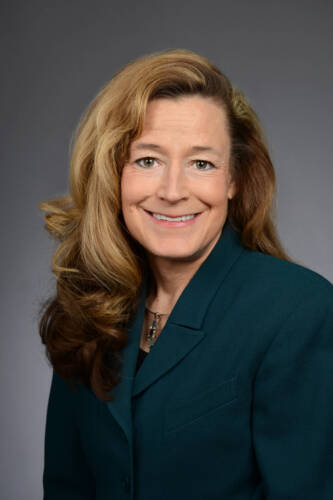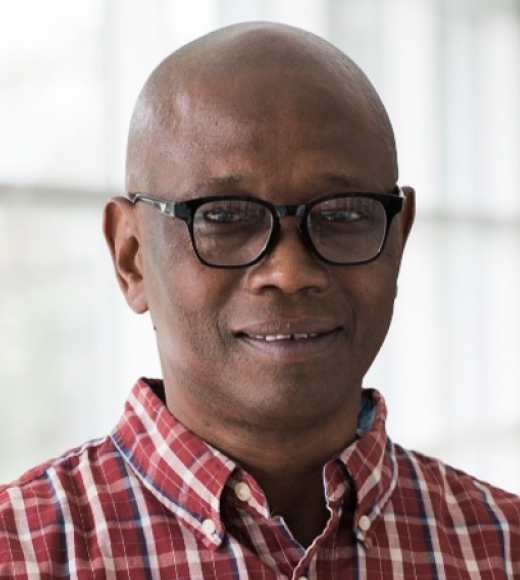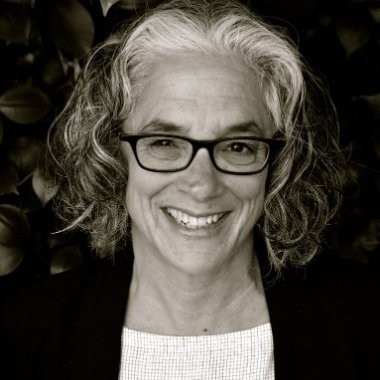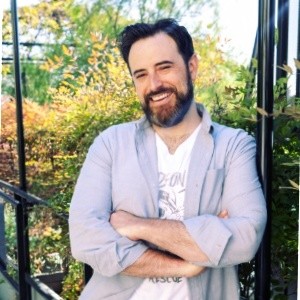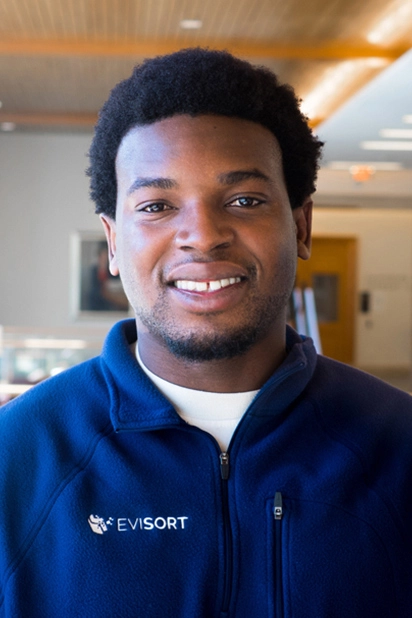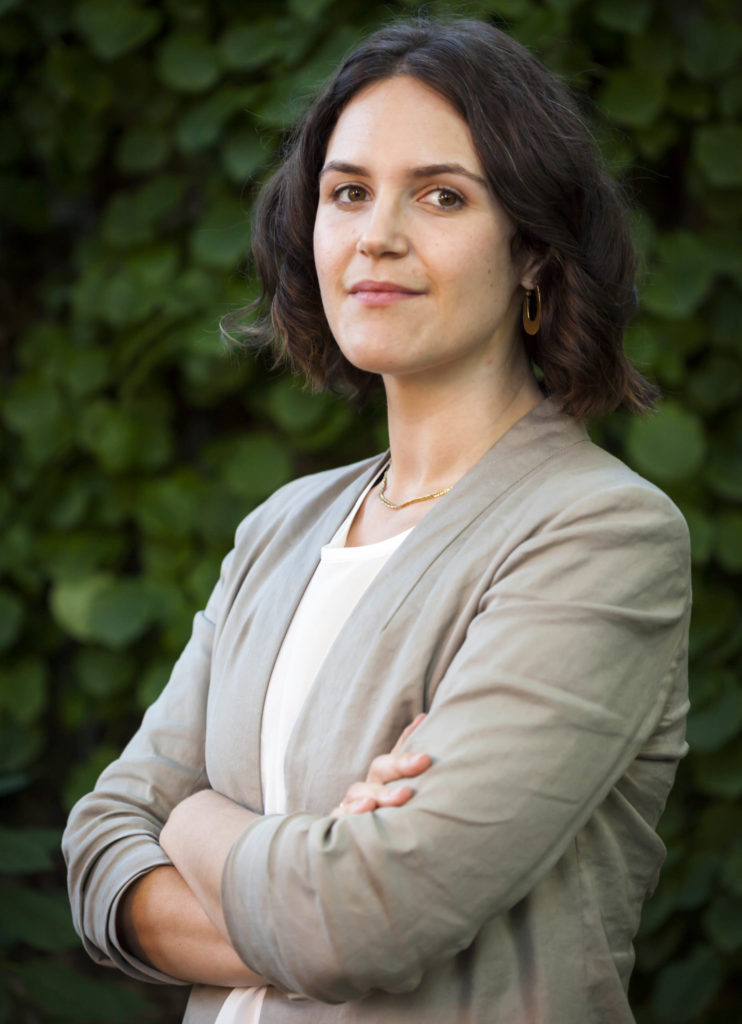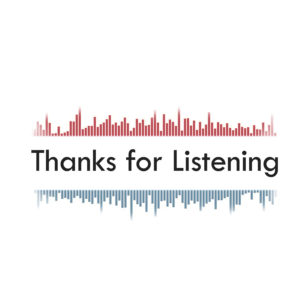 “Divides aren’t natural. They’re imposed. . . .We’re looking to build a bigger neighborhood.”
“Divides aren’t natural. They’re imposed. . . .We’re looking to build a bigger neighborhood.”
~Ben Fink
In this episode, journey with us to Letcher County, Kentucky—the heart of Appalachian coal country. We’ll examine both the reality of divides that exist where we might not expect them, and the fallacy of divides we create by accepting stereotypes about others—and about ourselves.
Our guest is Ben Fink, an ensemble member of Roadside Theater in Whitesburg, Kentucky. Roadside Theater supports community members’ efforts to design their own solutions to their own problems—by bringing people together to tell their stories, listen to the unique stories of others, and create community and economic opportunity through theater.
Ben comes at the notion of “divides”—and how to bridge them—from a perspective we’ve not yet explored. He challenges us to rethink the very notion of divides. As he sees it, we’ve been sold a false narrative that we are a nation of Red-Blue, Urban-Rural, North-South, Us-Them. Sure, divides exist—at a national level and in our neighborhoods. But when we let divides define us, we give up an important source of power—our shared experiences and commonalities. In this episode, Ben shares stories of what is possible when communities reclaim that power and create their future.
![]()
Thanks for Listening is a podcast tracking efforts to bridge the political divide in the U.S. through dialogue and collaborative processes and spotlighting the important and often courageous work of individuals and organizations who are helping citizens engage with one another on challenging topics. Episodes will dive deep into such issues as: managing difficult family dynamics and relationships affected by partisan differences; bridging the divides in Congress, the media, and in our social media spaces; training youth to move through conflict and toward civic responsibility; embracing dialogue in the face of extremism; engaging with others on highly emotional issues; and on working to restore divided communities. We hope that through the everyday examples of ordinary and extraordinary people all over the country, listeners will find optimism that we can—and are—moving beyond partisan divides, as well as inspiration to become part of the solution. This podcast is made possible with a grant from the American Arbitration Association International Centre for Dispute Resolution Foundation.
Hosts
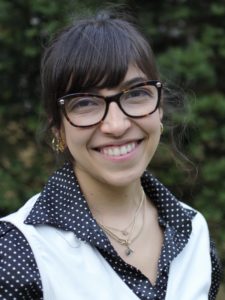
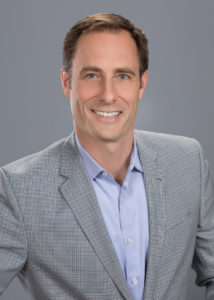
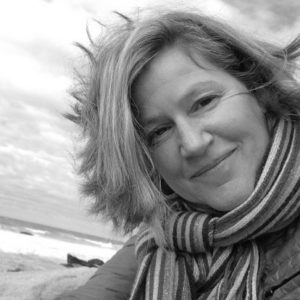
Sara del Nido Budish Neil McGaraghan Kate Ellis
Host Host Producer
Resources
Roadside Theater: Art in a Democracy
Guests
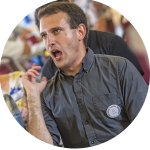 Ben Fink, a Roadside Theater ensemble member, leads Roadside/Appalshop’s Performing our Future project. He has organized with faith, labor, and homeless organizations in Minnesota and Connecticut; directed youth theater and creative writing programs in rural southern New Jersey; served as dramaturg on the German premieres of several Broadway musicals; and served on the board of directors of Pedagogy and Theatre of the Oppressed, Inc. Ben holds a Ph.D. in cultural studies from the University of Minnesota. His writings on culture, education, and organizing have been published by the National Endowment for the Arts, Salon.com, Moyers & Company, HowlRound, and ArtPlace America.
Ben Fink, a Roadside Theater ensemble member, leads Roadside/Appalshop’s Performing our Future project. He has organized with faith, labor, and homeless organizations in Minnesota and Connecticut; directed youth theater and creative writing programs in rural southern New Jersey; served as dramaturg on the German premieres of several Broadway musicals; and served on the board of directors of Pedagogy and Theatre of the Oppressed, Inc. Ben holds a Ph.D. in cultural studies from the University of Minnesota. His writings on culture, education, and organizing have been published by the National Endowment for the Arts, Salon.com, Moyers & Company, HowlRound, and ArtPlace America.
Transcript
Neil McGaraghan: From the Harvard Negotiation and Mediation Clinical Program, this is Thanks for Listening – a podcast about bridging political divides in America. I’m Neil McGaraghan.
Sara del Nido Budish: And I’m Sara del Nido Budish.
Neil: When we left off last episode, we had spoken with John Thompson and Sharon Press, who met and became friends when John participated in the community conversations that Sharon helped organize in Falcon Heights, Minnesota.
Sara: In this episode, we’re taking you to a different part of the country, a city in Letcher County Kentucky, called Whitesburg. Whitesburg has a population of about two thousand and is in the heart of coal country in eastern Kentucky.
Neil: We will introduce you to Ben Fink. Ben is an ensemble member at Roadside Theater, a group in Whitesburg that’s one part of a much larger nonprofit called Appalshop. Appalshop was founded in 1969 and produces original content across a number of different mediums, including films, video, music and spoken word, radio, theater and more. And more on Appalshop from Ben, but one of the things we learned speaking to him is that even in a corner of the country that voted overwhelmingly for President Trump, I think close to 80 percent, there’s more than enough political, social and cultural divide to go around. Which on one level was surprising, but on another level makes perfect sense. When communities have to decide how to address the myriad issues facing them today, whether they’re economic, environmental, political or otherwise, there’s bound to be deep disagreement and partisan divide on a very localized level.
Sara: Roadside theater’s approach to building connections and bridging divides revolves around people making things together. Ben sat down with us via Zoom to tell us more about what that means and looks like and how Roadside theater works and to share some of his stories. He started with how he got from a childhood in Connecticut and a PhD in cultural studies from the University of Minnesota to calling Whitesburg home.
Ben Fink: So the story is I was working for a long time at a rural arts and education organization in southern New Jersey. And if you’ve not been to rural southwestern New Jersey, it is pretty rural and pretty southern. And I got connected to the folks at Appalshop and specifically Appalshop’s theater division, Roadside Theater. I should say Appalshop is short for the Appalachian Media Workshop. So some people think I work with computers or orchards. I do neither of those things. But the Appalachian Media Workshop or the Appalshop for short A-P-P-A-L-S-H-O-P works in a variety of media. So film and theater and radio and music recording and then there’s community development work and youth leadership training and in as many ways as possible seeks to put the means of cultural production into the hands of the people and specifically the people in a place that has a long history of having stories told about it and having its future made for it by people that do not live there and people that have got a whole range of interests that may or may not correspond with the interests of the people that are there.
Neil: And there being Appalachia.
Ben: Yeah, there being the coalfields of East Kentucky and surrounding regions. As well as working in close solidarity with people in similar situations across the country and beyond. And one of those places that Appalshop has worked with for decades is the South Bronx, specifically collaboration between Roadside theater, the theater division of Appalshop where I work, and Pregones theater, a Puerto Rican theater company right at Grand Concourse. And when I was working in rural southern New Jersey, we’re talking now 2015, Roadside and Pregones, were making a play together off Broadway. And we got connected actually through a colleague, an old organizer and populist historian colleague in Minnesota where I used to live. And we started talking and I ended up working with them on that production. And then at the end of it, a few months later, I got a text saying, “Hey, we got this job open at the Appalshop. Would you be interested in moving to east Kentucky?”
Neil: And you said Absolutely?
Ben: I did.
Neil: Did you have to think about it?
Ben: You know, honestly, not for very long, because in the work that I had done with those folks in New York, I recognized colleagues. I recognized people that saw the world the way I did and saw the work the way I did. In a way that is pretty rare. And so given the chance to work with people like that and really develop both the work and my knowledge and skills, it didn’t take me long to say yes. A story that I love is several months after I moved to East Kentucky and specifically to Letcher County, Kentucky, where Appalshop is based, based in the county seat of Whitesburg population 1900. I was working with some people a half hour away in this old coal town that has about 120 people in it, and a woman there called me an outsider, not because I’m from Connecticut, but because I’m from Whitesburg.
Neil: Which is how far away?
Ben: A half hour.
Neil: Right. Yeah.
Ben: At 1900 people in it as opposed to 120 people in it. Is that a significant divide? Absolutely. It’s over ten times as much. Is there an actual cultural divide? Well sure. In Whitesburg there are, you know, there are different kinds of populations. There’s, there’s alcohol you can you can buy in Whitesburg. Can’t do that in a lot of other parts of the county. There is… It’s not that the differences aren’t real, but that they’re… It’s all relational and they exist on every level. And so the idea that there is a stark divide and everyone in Appalachia is one way and everyone in New York is another way is just incorrect. Because you go to Appalachia and you see that the people in Whitesburg and Blackey see each other sometimes as the Paris versus the provinces. And I need not tell you about how things are among different neighborhoods and cities.
Neil: Right. Right. Of course. And when you have those types of divides, which can be sort of glossed over and we can pretend they don’t exist when we’re sitting far away, but when those divides exist and you do the work of uncovering them, you also realize… or you tell me, do they in fact hold people back? I mean are they limits? Are these divides that you see within and between communities things that actually are limiting people’s ability to take control of their future, their destiny, and make something important for themselves?
Ben: So let’s… I want to reframe that question.
Neil: Yeah please.
Ben: Because the fact is of course divides limit each other. Right. Of course. When people see each other as incommensurably different and often a threat to the other’s existence, that is a huge stumbling block toward building any kind of solidarity and collective power that can be used to make change. What’s important to recognize, though, is that divides aren’t natural. They’re imposed. And oftentimes divides come along with culture wars, which means you are an existential threat to my place in the world and I am an existential threat to your place in the world
Neil: Which we see and hear around us all the time today.
Ben: Absolutely. And where did we get that idea? We got that idea from products that we have consumed that have been marketed to us. By, again, people who are not us and who stand to profit from our division. And the whole point of Appalshop and other organizations like it, like Pregones theater in the Bronx and many others that I can mention, is to do something different, to define ourselves, not by what we consume, but what we produce. Not what we hear about each other, not what we see about each other and see on TV, not what we read about each other on social media, but what we make together.
Sara: So I love the idea and I love the idea of secular communion and the notion of telling one’s own story. And I’m wondering, Ben, if you can share a little bit more about how Roadside puts this into practice each and every day. So, just at a nuts and bolts level, how do you work with the community? How do you produce these plays and these works? Who’s involved? How do you get them involved? How does it work?
Ben: First thing. Another reframe.
Sara: Please.
Ben: We don’t work with the community. We’re part of the community. We can be a contentious part of the community. We can be a, you know a… Communities have all sorts of people in them. But the fundamental frame is we are not a Hamiltonian elite condescending to work with a community that we see as outside of us. We are a part of the community, no more and no less. And I think that is really, really critical. Because then we can be clear with our neighbors, and by our neighbors I mean people down the street or people across the country. And that’s a big part of the point, is we’re looking to build a bigger neighborhood. And when we work with our neighbors in that way, then we can drop a lot of the pretense. We can drop a lot of the assumptions that I have something to give you and you need to receive it. And interact with each other in ways that are actually natural to help any neighbors interact with each other. We get to know each other. We spend time together. We figure out stuff that we both like to do. We do it together. We hang out. And if we like each other, we might keep doing more stuff together and eventually make stuff together. So before Roadside and Pregones made plays together, we were in each other’s community, we were going to each other’s churches. We were going to concerts. We were eating at each other’s houses. We were acting as neighbors. And I say Roadside and Pregones that is one example and there are partnerships across the country. So right now, the “Performing Our Future” projects, which is my main work, we have got partners in the Rust Belts of rural and urban Wisconsin. We’ve got partners in the Black Belt of Alabama. And we’ve got partners right in the middle of the inner city of West Baltimore, a stone’s throw from the CVS that burned in an uprising in 2015. And we all interact with each other in that way. It takes time. You can’t get a six-month grant and do this stuff. It’s relationships that are built over years. And through those relationships, we get to understand, all right, where do we align? We work from what we’ve got in common. We acknowledge our differences, but nobody has ever made friends with somebody else based on what they don’t share. You figure out what you do share. So we were doing… The folks in East Kentucky, in Letcher County, have been doing this intercultural dialogue project with people in western Massachusetts for the last couple of years. And originally the name for it that was proposed was “Hands Across the Divides.” And I said, no, we don’t start with the divides. We start with what we share. And so we thought about that. We’re both from hill country. We’re both in rural parts of our state. We’re both in parts of our state that are often maligned by people in urban places. And so it became “Hands Across the Hills.” And so that’s the way the work starts. It starts with a lot of spending time together with our neighbors, building relationships. And then there are specific things that we do in the midst of that. And those things that we do are really meant to get at each other’s stories. And so Roadside theater’s probably most well-known methodology is called the Story Circle. We developed it alongside the Free Southern Theater, which became Junebug Productions. They started as the theater wing of SNCC, the Student Nonviolent Coordinating Committee, part of the civil rights movement in the Deep South. And alongside them, we developed this methodology of the Story Circle. And the Story Circle is on one level super simple. It’s just people sitting around sharing stories. And on another level, deeply complex with very specific and intentional rules and procedures that have been developed over decades of doing this. And the idea of it is in a vastly unequal world to have an hour or two where in one room there is as close to perfect equality as possible. And in a situation like that, things come up in ways that you couldn’t imagine because people are all coming from their personal stories and they are listening really deeply to each other and they recognize a level of shared experience that they never would have thought possible. So the folks in western Massachusetts, the work started after the 2016 election and it was about divides. And most of you voted for Hillary and most of us voted for Trump and all of this stuff. Well, we’ve kept working together and we did a Story Circle earlier this month and it turns out that a whole lot of us in both places have these histories of really intense violence in our childhoods. Not me personally, but a lot of other people in both groups. And, as somebody pointed out, a really important shared strength in working through that and emerging strong through it. And we left that Story Circle and we recognize you have the divides didn’t go away and we had lots of knockdown, drag out discussions about class and religion and guns. Oh, man, the guns. It was great. But we recognize that those things don’t define us. What define us and how we choose to define each other on our own terms is what our shared interests and our shared stories and what we want to make together and, and how we want to make sure that we own the value of what we make.
Neil: So one of the… One thing you just said really struck me, a bunch of things really struck me, but one I’d like to ask you about right now is this idea that well… What you shared about that Story Circle from earlier this month, there were some really powerful topics covered. But among them, you know, violence suffered by people personally as children.
Ben: Sure.
Neil: And you said something really interesting about sort of creating the Story Circles and making it as close to equal as, as humanly possible. And I guess part of my question is, what do you do to create the environment, to create the conditions where people are able to see each other as, you know, as close to equal as humanly possible and to share that kind of personal and traumatic life experience. How do you create that environment?
Ben: Well, first of all, that Story Circle came out of two years of relationship building. Visiting each other’s spaces, being in each other’s homes, all that. The first Story Circle we did was not that deep.
Neil: OK.
Ben: And that’s important. But the first Story Circle often is still pretty deep. And so it’s all of the details from – you’re in a space where nobody goes in or out except in an emergency. You have a circle of chairs, nothing in the middle of the circle, nothing on people’s laps. Everything’s silent. There is a prompt. You agree on it together. And then one person breaks the silence and starts telling a personal story in response to that prompt. So I think the prompts with that Story Circle was something like, “Tell a story of a moment in your upbringing that has had an effect on the way you participate in society today.” So that was the prompt.
Neil: Mhm.
Ben: And then one person, and that was decided on together, then one person answered it and everybody else listened. There’s no cross-talk. There is no commentary. And then the person to that person is left has a choice. You can pass. You can always pass. And we’ll come back to you. Or you tell a personal story that relates in some way to the prompt and or to the stories you’ve heard before you. And so what I tell people is one of the really interesting things about Story Circles is it is… It kind of inverts the playing field in terms of class privilege. Because poor working middle class people have no problem with it, because storytelling is a thing that is much more common in those kind of cultures. People like me who have too many advanced degrees. Oh, we like to do talking points. We like to do arguments.
Neil: [Chuckles] Right.
Ben: We like to do thesis statements, all that stuff. What we like to do is memorize ourselves. And what a Story Circle says is “No you can’t do that.” Your experience matters just as much as everybody else. You know, this is not privilege flagellation, but also everyone else’s experience matters just as much as yours. And we are going to tell stories because that is something that everybody does and everybody has. And if anything, it is going to be you all who are often at a disadvantage, who are often at an advantage, who are maybe going to be a little bit at a disadvantage. And so what I tell people is, again, especially people like me from overachieving suburban northeastern backgrounds is, “Don’t tell the story you think of when I tell you the prompt.” Because I know you’re going to think of one. “Yeah, I got my story. I’m thinking about it.” No, you’re going to listen to every story that comes before you, because by the time it gets to you, the story that you had in your head is probably not going to be the story that’s most relevant, because what you’re building in a Story Circle is what we call the story in the middle of the circle. The story that is shared among all of us, among all of our deeply personal and individual experiences. We are building a shared collective story, and that is the basic building block for the theater that Roadside theater makes.
Sara: One of the phrases I read in one of your articles is “stock part.” It’s in some ways, the way you were referring to it in the article and what I hear you saying now, is that there are ways in which each of us have kind of stories that are on tap for, for ourselves. And those are the ones that we tell ourselves and others. And it sounds like this is a way to get… get everyone away from their stock stories.
Ben: Well because stock characters… And you know I’m a physical theater maker, I love commedia dell’arte. I got nothing against stock characters, but they’re not made by us. They’re costumes that we put on and masks, literally in the case of some forms of physical theater, masks we put over us and now we are embodying that stock character. And what we are doing is the opposite of that…is saying, you know, you have been sold a costume of the judgy elitist Northeasterner who thinks that everybody who lives in East Kentucky is dumb. And you have been sold a costume of the redneck hillbilly ignoramus who thinks that all outsiders are just there to take your guns and should be shot. And let’s acknowledge that those things are in the room. But let’s not put those things on. Let’s say, yes, this is what has been marketed to us. This is the culture war that has been marketed to us in order to keep us divided and conquered. And we are not going to take that bait. We are going to create our own stories and we are going to create our own characters and we’re going to make our own future.
Neil: So then when you have that, yeah the product of that circle, the story in the center. Once you have done the work of building that story, getting the participants in the circle sort of to shed their stock stories, whether it’s a divide between the hills of Massachusetts or the hills of eastern Kentucky or something more local to jump between communities in Kentucky. How does that building block then become the basis for building something? What is the next then? Where do you go from there?
Ben: Yeah. So Story Circles are a technique, right, they’re a technology, a moment within an organizing process. And so all of the work that we do at Roadside is rooted in the notion of communities like the ones that are in East Kentucky and allied communities across the country and beyond. We are looking to tell our own stories, build our own power, and create and keep our own wealth. That is the end goal. And so where that starts is in building relationships with one another and building relationships with one another in a very specific way. So we are always looking in a community that we’re working in, whether we’re talking about a community, you know, the next town over in Letcher County or, you know, across the country in West Baltimore or the Black Belt of Alabama. We’re looking for the places where everyone in that community can come together and, in fact, are coming together as co-creators. And those places look different in different communities. In some communities those look like churches, sometimes they look like community centers. Sometimes they look like schools. Sometimes they look like grassroots development organizations. Sometimes, and this was a surprise to me as a Northeasterner, sometimes they look like volunteer fire departments. But what are the places? What are the places in a community where everybody comes together and is equal and can co create? So… And these are the spaces that Roadside calls “community centers of power.” That’s language derived from Bayard Rustin, the great civil rights strategist. And a community center of power is not a service or administrative organization. So if you come into a space and there is a big counter and some people are allowed on, you know, behind the counter and everybody else has got to stay in front of the counter. That’s probably not a community center of power. Community centers of power is where you come in, and sure they’re running a pizza making company in this, in this coalfield community center -this is a real example from Letcher County – and obviously, there are some people there that are working there and others that aren’t, but the people that are working there are your neighbors. Specifically, oftentimes, your neighbors that are coming out of drug court, coming out of incarceration, coming out of addiction and that are working together to create value and create jobs for themselves and value for the community. And that anybody can… You know, you’re welcomed right into the kitchen. And if you want to volunteer or if you want to help out making the pizzas they’ll teach you how to do it. And there is no space where the community isn’t allowed. And there is no role that a community member can’t have if you’re willing to put in the time and the work. And those are the kind of places where we anchor our work.
Neil: And then, so when you have created some of those conditions in communities and communities have empowered themselves to do that work, to find opportunity and to take advantage of it and to welcome their community in. Do you see from there… Is that a building block then to even more? Or is that…
Ben: Yeah, let me stop you for a second. Just to say that a lot of people have trouble understanding that every community does already organize itself on some level. That we don’t look for these community centers of power. That a lot of times a nonprofit, a government, an educational organization, a health organization, any sort of institution will go in and they say, “Well, we’re going to work with this community. So we’re going to find another top-down organization that looks like ours. We’re going to work with the university. We’re going to work with city hall. Blah, blah, blah.” You are not going to do Democratic work that way. You’re going to do Democratic work when you find the places that aren’t obvious where people are coming together in those ways. And then when you find those places, when you find those community centers of power, then you build relationships with the leadership there. And the leadership does not mean, necessarily, the people with the official titles or the advanced degrees or the credentials. It is the people who are able to command the trust and following of their neighbors. Because that’s the only way you make an equitable partnership. And so then Roadside Theater or another part of Appalshop will enter into an equitable partnership with the Hemphill Community Center in Letcher County, which I was talking about, or Pregones Theater in the Bronx or the Arts Social Community Network in West Baltimore. And then we together get to know each other. We meet. We visit each other’s communities and we start talking about, well, what are you wanting to make? Well, what are you wanting to make? Well, what can we make together? And then through that process of figuring out what we want to make together and make it together, that is how the work happens. And oftentimes a play or another piece of media is a really important catalyst for that process. But then it goes in all sorts of different directions. And there is no cookbook for it. And these projects look differently wherever they go. In Letcher County it involved starting that brick oven bakery in a coal camp community center that we were talking about. It looked like reviving the oldest community square dance in Kentucky. It looks more recently like building the biggest homegrown alternative energy project in the history of the east Kentucky coalfields. Coming right out of this work. Because when people recognize that they all care about their community centers of power and their community centers of power share a lot of the same both desires and interests and stuff they want to make together and recognize common barriers to those that they can, can overcome together. Any number of things can happen there. And what, what is really happening, and this is to quote the Jamaican economist Lewis Hutchinson who’s been a close ally of ours for years, is people’s imaginations get unbounded. Because one result of long legacies of economic exploitation is the bounding of people’s imagination. “Well, there’s no way that we can do X because we can’t see it now.” Right. “There’s no way that things could be different from the way they are. There’s no way I can have a future that isn’t this dead-end job.” And likewise, in terms of this question of divides, right, “There is no way that we could work with those kind of people. There is no way that people from there who are clearly threats to our existence and would want to kill us, you know, could ever see eye to eye with us, let alone we could build anything together.” So this whole process is about unbounding people’s imaginations and, critically, unbounding our own imaginations. Because, again, we’re not above or below the community. We are a part of the community. And our imaginations have been bound just as much as anybody else’s.
Sara: Yeah I was thinking, as you were um describing this, you must have to be a really good listener. A really good patient, patient listener. Um and, you know, sort of resist the… not that there’s, you know, experiences that you’ve learned over the years and, you know, not going in with a preconceived idea about what is the product of our relationship here? And have that grow from the relationship itself instead.
Ben: And it’s also really exciting, though.
Sara: Mhm.
Ben: Because they’re, you know, the idea well “I’m gonna to come into West Baltimore, you know, and I’m gonna, I know exactly what this community needs and we’re just gonna to do it.” Like not only is it ineffective and often counterproductive. It’s also really boring.
Sara: Yeah.
Ben: Like its way more interesting to…
Sara: To be surprised.
Ben: Right. To be invited, you know, by a partner or build a relationship with equitable partnership into the oldest African-American social organization in the city. And just talk and share stories for a while. Its like who knows what’s going to come out of that? And what we’ve found time and time and time again is when poor working middle class people from these different places actually get in a room together and share, you know through this process, it takes them about two seconds to realize that they are not each other’s enemy and that they share a ton. I mean, this is particularly…. So our partners in Uniontown, Alabama, the Black Belt, it is a town about half an hour west of Selma, roughly the same size as Whitesburg. Just under, just under 2000 people. Racially, inverse. Whitesburg is about 90 percent white and Uniontown is about 90 percent black. One of the major struggles in Uniontown has been about this landfill that is just south of town, literally in some people’s backyards, where a big waste company dumped a seven-story high mountain of coal ash, which is having nothing to do with the massive health issues that are plaguing the town. So says the company that dumped it. Well, that mountain of coal ash, turns out, was burned in east Tennessee about three hours from Letcher County and some of that coal was mined in the Scotia mine, which was in Letcher County and the site of one of the biggest mine disasters in the history of Letcher County. So literally the coal that killed people in Letcher County is currently killing people in Uniontown, Alabama. And people from Letcher County came there and saw that and the people in Uniontown told that story. And that was an experience of secular communion.
Neil: It’s incredibly powerful to hear the stories, to hear that story, but all the stories you’ve been sharing today about people coming together across really deep and potentially, people look at look at them as, insurmountable divides. And what you’re proving is that they’re not insurmountable.
Ben: No.
Neil: It’s a construct that we’ve all kind of bought into or some of us have bought into it, in any event, and you have to work to undo the buy-in.
Ben: And you have to work hard at it. It’s not easy. Like this work is not kumbayah. I mean, I can tell you tons of stories. I mean, this is painful. It is hard. You know, racial divides are real. Class divides are real. You know, I don’t want anybody walking away from this saying, “Oh just get it right together and it’ll be fine.” Like no. You know the reason why Junebug Productions, African-American Theater Company and Roadside, predominately white Appalachia Theater Company, created this story circle over decades of work together is precisely because these things are so hard. And they are not absolute. And they are surmountable. And doing the work is an experience of joy. Joy through struggle, but joy. Like this idea that, “Oh, I got to talk with these people, it’s gonna be so hard.” It like, well it might be hard, but it’s hard in a way that’s going to make you want to do it again. What is really important and where I will often challenge a lot of people doing this intercultural dialogue work is you will note that in everything we talked about what is at the center is what we are making together. That we are creating together, we are creating stories, we are creating plays, we are creating businesses, we are creating initiatives, and we are working together to keep the value of what we create. And that making is at the center, not dialogue, not discussion. Dialogue and discussion is critical, but it happens in the context of making together. Because through the making together is how we cast off those costumes, those stock characters. We say, “No, we are not going to define ourselves on what we are buying, what we are consuming from those that would have us remain divided. We are going to intentionally create together, create stuff together, create stories together and ultimately create a future together.” And in that process, we will have all sorts of discussion, dialogue, deliberation, and that’s critical. And it’s in the context of making stuff together. And it’s got to be in the context of making stuff together.
Neil: And I love it. Thank you so much, Ben.
Ben: Absolutely.
Sara: Thanks for sharing. We really appreciate it.
Ben: My pleasure.
Sara: Ben Fink as an ensemble member of Roadside Theater and leads the Performing Our Future Initiative, which is the project that he’s been discussing here. In addition to his experience in organizing, Ben has served on the board of Directors of Pedagogy and Theater of the Oppressed Incorporated. His writings on culture, education and organizing have been published by the National Endowment for the Arts, Salon.com, Moyers & Company, HowlRound, and ArtPlace America.
Neil: On our website, you’ll find links to lots more information about Roadside Theater, including its current projects, video clips of some of its theater productions, and articles by Roadside Theater members about its approach and guiding principles. You can also find a link to Appalshop, which celebrates its fiftieth anniversary this year.
Sara: Our website is HNMCP.law.harvard.edu/podcast. There you’ll find all the materials for today’s show as well as a full transcript and past episodes.
Neil: We’re grateful for the help and support of our colleagues at the Harvard Negotiation and Mediation Clinical Program, especially Tracy Blanchard.
Sara: Thank you to Kate Ellis, our producer, and to the folks at the Harvard Media Production Center where we do our recording. Theme music is made available to us courtesy of Blue Dot Sessions. This podcast was made possible by a grant from the American Arbitration Association’s International Center for Dispute Resolution Foundation.
Neil: You’ll hear us again soon for our next episode.
Sara: Thanks for listening.
Neil: Thanks for listening.

